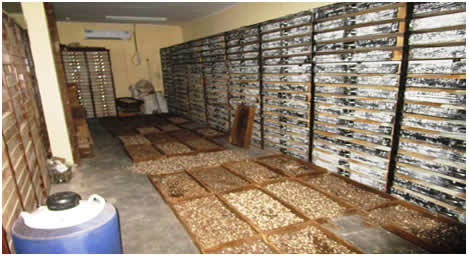 IRAD has never achieved such a great performance in the development of the oil palm sector, through its Specialized Station of Agricultural Research on Oil Palm of Dibamba (Littoral region).
IRAD has never achieved such a great performance in the development of the oil palm sector, through its Specialized Station of Agricultural Research on Oil Palm of Dibamba (Littoral region).
Indeed, thanks to the support of the African Development Bank (ADB), the recruitment of new researchers and good governance driven by the Director General, Dr. Noé WOIN, the Station IRAD-Dibamba has made available more than 5 000 000 (more than 25 000 ha of palm groves, that is to say 200 germinated seeds per ha and an average of 5 000 bunches of assisted fertilization harvested) of 100% Tenera seeds (with the possibility of going further).
Tenera is a hybrid variety obtained from the crossing of Dura (female parent) and Pisifera (male parent). A variety with a very high yield (3.5 to 4 tons of palm oil per hectare per year) and tolerant to fusariosis (cryptogamic disease that attacks more oil palms).
It is a variety recommended for the regions of the South-West, the North-West and the West, which are more affected by fusariosis.
Very early, Tenera, unlike Dura (low yield) and Pisifera (abortive), starts to produce from 3 years for a continuous exploitation at least 25 years. For one hectare of land, it requires 143 plants.
Researchers at the IRAD-Dibamba Station are unanimous in recognizing that the ADB-funded project (PD-CVA) has significantly improved the yield of palm groves in terms of bunches (2,000 to 3,000 t) during 2019 and 2020, the maintenance of plots (pruning, trimming, gyro-cutting and roto-cutting) and the increase of casual labor.
For the record, the PD-CVA supported by the pan-African institution is an initiative of the Cameroonian government that focuses on improving the competitiveness of the pineapple, plantain and oil palm sectors, and the creation of jobs and wealth to reduce poverty through the contribution of agricultural value chains in the three sectors.
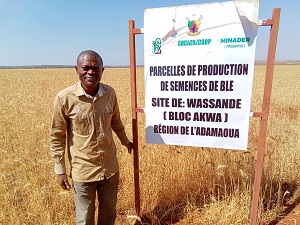
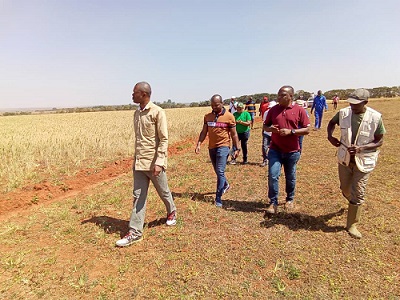
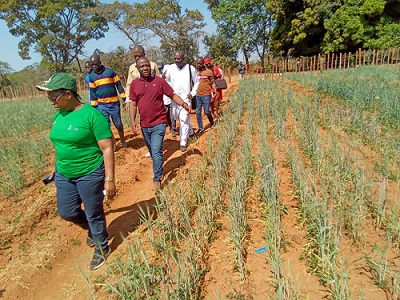
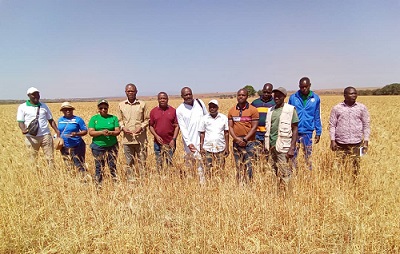
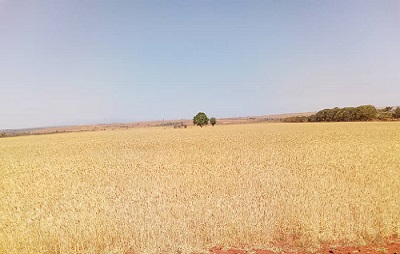

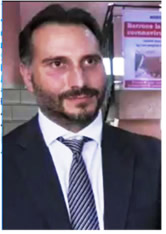
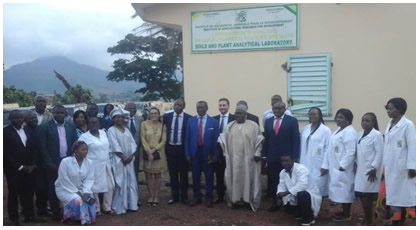
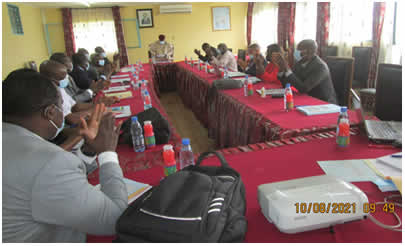
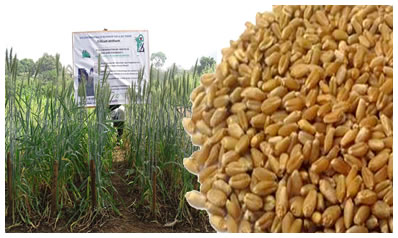 To boost local production and processing of wheat (scientific name Triticum ssp) in Cameroon, the Head of State, His Excellency Paul BIYA, concerned about the food security of his compatriots, has ordered a special grant to the Institute of Agricultural Research for Development (IRAD).
To boost local production and processing of wheat (scientific name Triticum ssp) in Cameroon, the Head of State, His Excellency Paul BIYA, concerned about the food security of his compatriots, has ordered a special grant to the Institute of Agricultural Research for Development (IRAD). IRAD has never achieved such a great performance in the development of the oil palm sector, through its Specialized Station of Agricultural Research on Oil Palm of Dibamba (Littoral region).
IRAD has never achieved such a great performance in the development of the oil palm sector, through its Specialized Station of Agricultural Research on Oil Palm of Dibamba (Littoral region).